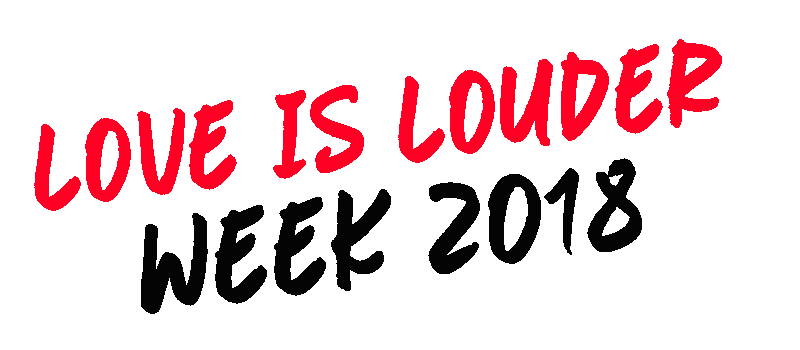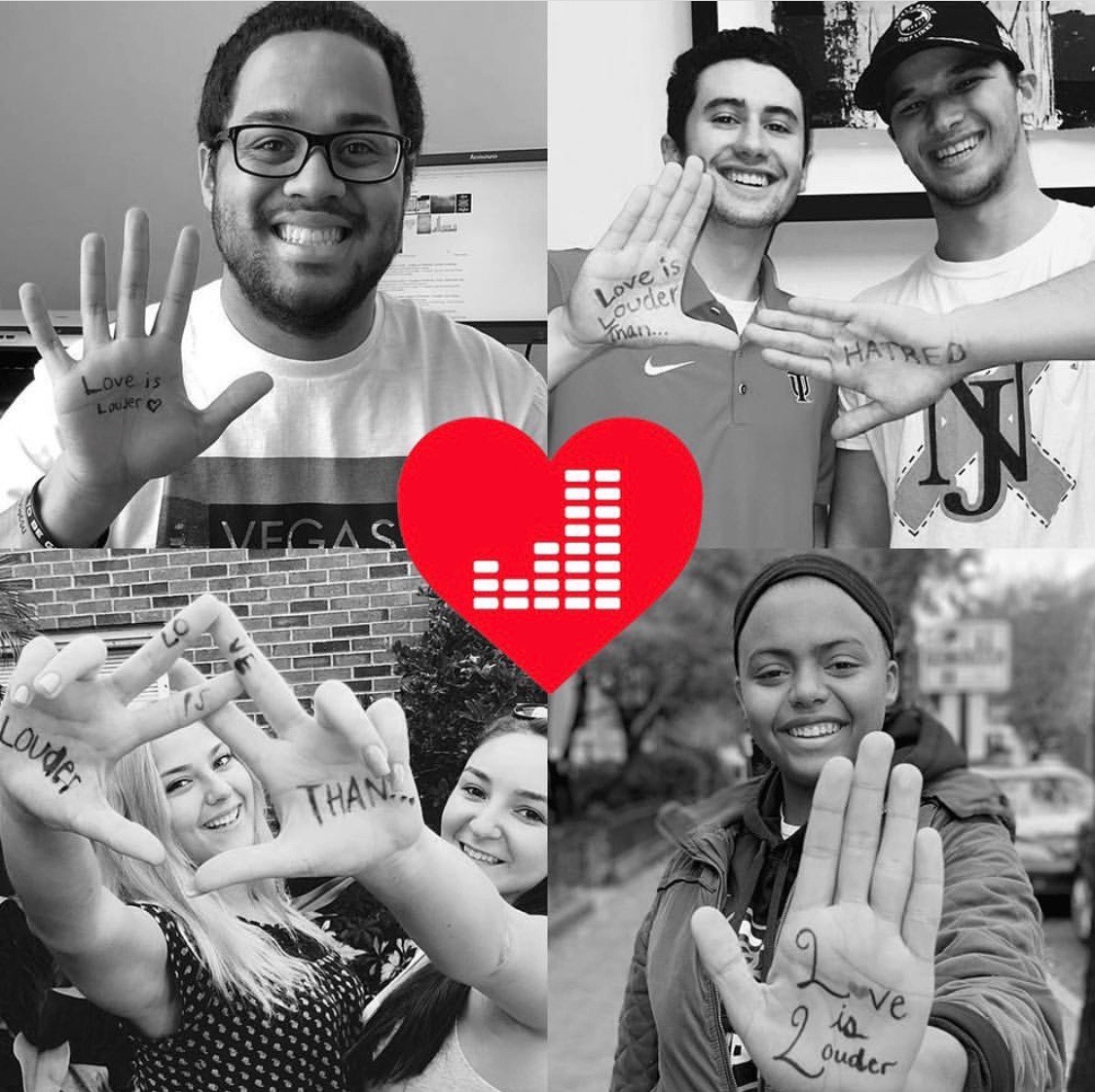Programs
Rams C.A.R.E. [Cope. Adapt. Reframe. Empathize]
Whether you have been diagnosed with a mental health disorder, are struggling to find your footing at VCU, or are working to maintain optimal mental wellbeing while balancing the demands of student life, VCU is here for you!
Did you know? Rams are actually more supportive than you think! While many Rams think that their classmates would think less of them for receiving treatment for their mental health, almost all Rams said that they wouldn’t think less of someone at all (Healthy Minds at VCU, Spring 2018). It’s good to know that when it comes to Rams seeking help for mental health, our Ramily supports us!
In this episode of the What The Well? podcast, listen to Associate Director of The Well, Trisha Saunders, and special guests Dr. Christine Strasser from University Counseling Services, Dr. Amy Adkins, Assistant Professor in the Department of Psychology and a researcher with the College Behavioral and Emotional Health Institute (COBE) at VCU, senior student Malcolm Richardson, and junior student Emily Mustian, as they explore ways that students can check in on their mental health and wellbeing.
Learn more about how Rams Care for themselves and each other.
It’s recommended that everyone head to a medical care provider each year for a physical check-up to make sure our bodies are working normally for us. Our mental wellbeing is no different! It’s important for us to check in with ourselves regularly to make sure that we are ok! Check-in daily by setting aside time (even 5 minutes if that is all you have) to be in the moment. What thoughts, feelings and sensations do you notice? Are you able to relax? What does your mind and body need in this moment?
Did you know?
Eustress is positive stress that energizes us.
Stress is meant to help- It’s our body’s way of giving us the energy we need to tackle a challenge- like running a race or taking an exam. Stress motivates us to keep moving forward- to learn new things. The key isn’t ignoring stress, it’s using to enhance our performance in the moment, and then finding quick and easy ways to relax and unwind that work for us.
Did you know? How we treat our bodies impacts how our brains function. Getting adequate sleep, nutrition, physical activity and relaxation helps support our mental health! One study among VCU students showed that using recreational sports facilities is actually associated with an increased chance of staying in school, with more frequent utilization associated with greater benefits (Quest innovation fund award, Adkins and Dick, 2016)! Running a treadmill or lifting weights not your style? Rec Sports has way more to offer than traditional exercise. Visit VCU RecWell to find the right activity for your lifestyle.
Distress is negative stress that overwhelms our ability to cope.
Extreme stress or prolonged stress can be harmful. When we start experiencing a stress response to something that happened in the past or something that hasn’t happened yet, or when we have difficulty recovering after a stressful event, it might be time to check in about what is going on!
Sometimes life gets overwhelming or hard to deal with on our own. It’s okay to ask for help! For many of us, that’s the first step in working through difficult experiences toward more positive ones. Make a list of people who support you! Maybe that’s a friend, a roommate, a parent or a counselor.
Visit The Wellness Resource Center's website to learn more about managing stress and to find more resources on being mindful.
Know the signs!
If you or a friend are...
- Having difficulty with sleep
- Feeling numb
- Constantly fatigued
- Excessively worrying
- Having recurring nightmares about specific events
- Having muscle soreness
It might be time to get some extra help. Visit our resource page to learn more.
Life is constantly changing. Plans fall through, relationships end, we switch majors or jobs. Changes in life are inevitable, but being open to adaptation can help us handle unforeseen difficulties. Looking at change as opportunity for growth can allow us to move more confidently through life's challenges!
Tough breakup? You can tell yourself: "This is really hard right now. With time, I'll come through it on the other side knowing more about what I do/don't want out of my future relationships."
New environment? You can tell yourself: "I'm scared. I can step outside my comfort zone and try something new."
Lost or changed a job? You can tell yourself: "This feels like a big setback. I can seek out resources to help me explore more and find what I'm really good at." Check out VCU Career Services to learn more about all the ways they can support our students and alum.
Did you know?
Most Rams rely on their Ramily and other sources to support their mental and emotional health. This includes friends, roommates, significant others, family, and religious leaders, and support groups (Healthy Minds at VCU, Spring 2018). Sometimes life gets overwhelming or hard to deal with on our own. It’s okay to ask for help! For many of us, that’s the first step in working through difficult experiences toward more positive ones. Make a list of people who support you and who you could ask for help! Not sure? Visit our resources page to find support at VCU.
We can learn ways to stay grounded through changes and tough times. That way, no matter what is happening around us, we can tap into calming feelings.
- Be kind… especially to ourselves. We are usually good at being there for others during tough times or setbacks. Let’s practice showing up for ourselves as well!
- Sometimes it helps to take that first step when we have a safety net or support system to help us if we fall.
- Lean into feelings of discomfort- sometimes we are going to feel icky. Experiencing emotions like fear and disappointment without dwelling on them helps us tap into our strength to overcome and be optimistic for the future. This takes practice!
- Don’t forget to breathe! Even a few moments of breathing deeply can help us relieve anxious feelings.
- Recognize when your reactions are coming from a place of fear or uncertainty.
- Celebrate every achievement. On the tough days, if we make it out of bed and show up to class, it’s a win!
Know the signs!
Tried everything to adapt and still feeling shaken up by life changes? If you or a friend are…
- Crying more often than not
- Feeling hopeless
- Losing interest in work/school/socializing
- Feeling stuck
- Being overly self-critical (I should be able to handle this)
- Not able to see a way through it
It might be time to ask for some extra help. Visit our resources page to find support at VCU.
Did you know?
Did you know? Rams are actually more supportive than you think! While many Rams think that their classmates would think less of them for receiving treatment for their mental health, almost all Rams said that they wouldn’t think less of someone at all (Healthy Minds at VCU, Spring 2018). It’s good to know that when it comes to Rams seeking help for mental health, our Ramily supports us!
Imagine a world where there’s no such thing as “failure” or at least we don’t call it that. Where everything we experience is all feedback- whether it’s positive or negative, it’s just new information to help us find and live our truth.
How often do we struggle with their past decisions, unable to let go? Usually, we make choices based on the information we had at the time, yet we want to judge ourselves for doing what we needed in that moment. Chances are, somewhere within that choice or experience we are framing as failure, we have learned some important things about ourselves and what we want/don’t want out of life.
Instead of letting "failures" define us, we can learn to move past them and see them as learning opportunities. It takes practice and a little self-compassion! Remember, if you wouldn't say it to a friend who is struggling, don't say it to yourself! This music video from The Wellness Resource Center says it all.
Know the signs!
Can’t get past the self-criticism? It could be time to ask for help from a friend, advisor, or mentor. If you or a friend are…
- Experiencing persistent, intrusive, automatic negative thoughts (ANTS) that won’t go away, like:
- Focusing only on the negative
- All or Nothing Thinking (“I’ll never achieve my goals”)
- Fortune Telling (“I know won’t pass this class.”)
- Mind-Reading (“Everyone hated my work.”)
- The “Should” Monster (“I should be doing better.”)
- Labeling- ourselves and others (I'm a loser.")
- Becoming our feelings (“I feel stupid, so it must be true.”)
- Taking things personally ("My professor didn't say anything about my project so they must have hated it.")
- Catastrophizing ("If I fail this class my future is ruined.")
It might be time to ask for some extra help. Visit our resources page to find support at VCU.
Did you know?
Connecting with others and building positive relationships is linked to success and thriving. A study of VCU students showed that getting involved and being a leader in student orgs at VCU is actually associated with an increased chance of staying in school (Quest innovation fund award, Adkins and Dick, 2016). Find your people at Rams Connect by visiting ramsconnect.vcu.edu or find ways to volunteer in our local community at VCU Community Engagement.
When asked, 74% of Rams chose "Diverse" as the word that best described VCU (The Well's UCelebrate Survey, Spring 2018). This means empathy for people with different identities, cultures, lifestyles and beliefs from our own is extra important for the wellbeing of everyone here!
We know that most Rams rely on their Ramily and other sources to support their mental and emotional health. This includes friends, roommates, significant others, family, religious leaders, and support groups (Healthy Minds at VCU, Spring 2018). We can support each other by
- Listening.
- Trying to understand how someone else is feeling.
- Being there as much as we can.
- Sharing all the things we love about someone.
- Help someone connect to a larger support network.
Know the signs!
If you or a friend are…
- Withdrawing from friends and family
- Not showing up to classes or activities
- Posting cryptic messages on social media
- Changing routines
- Losing interest in activities
- Feeling hopeless
It might be time to ask for some extra help. Visit our resources page to find support at VCU.

- We all have the ability – as individuals, businesses, organizations, communities and campuses – to use our words and actions to make a positive impact on our community. During Love is Louder Week, we want everyone to think about how you can use your reach, voice, talents and resources to help make your community more resilient, supportive, connected and inclusive.
- We believe that, together, we can turn down the volume on negative, divisive and harmful noise, and amplify positive messages that will help our communities heal, connect and grow stronger.
- This past year, The Jed Foundation has had more requests than ever from campuses and communities who want to use Love is Louder programs, events and resources to tackles issues like bullying, discrimination, body image, loneliness and depression. Love is Louder Week is also a time for us to raise funds together to support this important work.
